
Coasting out from England and crossing into the European mainland on the morning of Friday July 7, 1944, was a huge aerial column of USAAF 8th Air Force heavy bombers, almost 100 miles long, consisting of 373 Consolidated B-24 Liberators and 956 Boeing B-17 Fortresses-a total of 1,329 bombers. The fighter escort for this phalanx of bombers totaled 756 long-range fighters-P-38s, P-47s, and P-51s-over 2,000 aircraft in all. What a daunting sight that must have been for any defender! The bombers' targets were the synthetic oil plants at Böehlen, Leuna-Merseburg, and Lützkendorf; aircraft assembly plants and engine factories in the Leipzig area; airfields; and railway marshalling yards, all deep in the German heartland. As the bomber formations droned toward their targets, they were tracked by the Luftwaffe's sophisticated and well-practiced air defense command and control system.
The USAAF bomber crews were hardened to mass fighter engagements, especially on these deep penetration missions, and they had recently been subjected to multiple headon attacks. They did not know however, that today the Luftwaffe was about to unleash a new tactic, utilizing its new Gruppe of heavily armed and armored Sturmböcke Focke Wulf Fw 190s in a large battle formation or "Gefechtversband." (Sturmböcke translates as "battering rams.")
This story is from the {{IssueName}} edition of {{MagazineName}}.
Start your 7-day Magzter GOLD free trial to access thousands of curated premium stories, and 9,000+ magazines and newspapers.
Already a subscriber ? Sign In
This story is from the {{IssueName}} edition of {{MagazineName}}.
Start your 7-day Magzter GOLD free trial to access thousands of curated premium stories, and 9,000+ magazines and newspapers.
Already a subscriber? Sign In
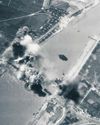
A-26 BRIDGE BUSTER
Courage under fire in North Vietnam
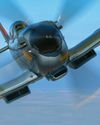
Spitfire FIGHTER-BOMBERS
The iconic fighter was surprisingly effective in other roles
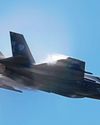
"BAT WING" LIGHTNING
The Charlie-Model F-35
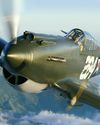
OUTGUNNED & OUTMANNED
A losing battle against a well-equipped foe
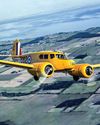
Wichita Wonder
Cessna’s I-50 proves to be astonishingly necessary for RCAF trainees
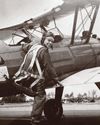
WARRIORS REMEMBERED
Families gather in England to pay tribute to a fallen WW II aircrew
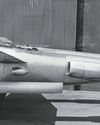
Lockheed XP-49: Trying to Do the P-38 One Better
IT MADE NUMEROUS TEST FLIGHTS and at least one cross-country journey, yet no air-to-air picture of it appears to have survived.

Keeping 'em Flying!- The new generation of warbird pilots, restorers and mechanics
The new generation of warbird pilots, restorers and mechanics. Nearly 80 years after the end of World War II, the fighters, bombers, and trainers that defended freedom continue to enthrall and inspire audiences at airshows, thanks to generations of warbird pilots, maintainers, restoration specialists and collectors. In our September, 2022 issue we introduced you to the young warbird pilots, maintainers and restorers who are already beginning to displace more "experienced" warbird fliers and fixers.

The Corsair Maker- Bringing the Vought Corsair to the fleet was a daunting challenge that spanned nearly three years.
When the first production Corsairs exited the Stratford factory in June 1942, Guyton, as seen here, was tapped to manage the flight and production test program. Armament was improved to six wing-mounted .50s, displacing the wing fuel tanks now placed forward of the cockpit which necessarily was moved rearward by 32 inches. Overall length was increased, armor plate added, landing, arresting and tail gear improved, aileron control enhanced, and a new version of the R2800 engine was incorporated. But those significant improvements unearthed numerous idiosyncrasies that would take an extended period to make the Corsair acceptable for carrier operations
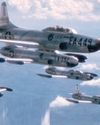
STARFIRES Over Korea
F-94 pilots tangle with MiGs